Full Schedule
10.00
Opening
13.00
Opening Speech
Studio 114.00
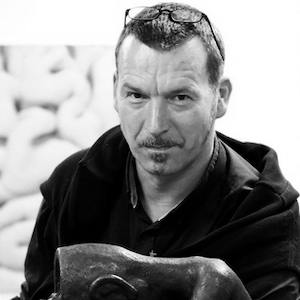 Jiří Horáček
Jiří Horáček
Things which matter the most: reality, brain and consciousness
Linking physical reality, brain activity and consciousness still stands as one of the most interesting and elusive problems of neuroscience, psychology, psychiatry and philosophy. Finding their mutual relationships represents the first step toward explanation how the brain process external information and how the picture of reality in our mind relates the world.
In this lecture, I deal with two central questions of consciousness: how and why? “How” refers to the theoretical and empirical approach to reveal the neural correlates and mechanisms that form consciousness. On the other hand, “why” refers to both the evolutionary origin and the question why is there conscious experience at all.
The extraordinary states of consciousness elicited by the psychedelics, such as DMT, psilocybin and LSD, represent one of the most powerful tools for understanding neurobiology of consciousness and answering both “why” and “how” questions. The results of brain neuroimaging studies on the effect of psychedelic drugs on structure of consciousness provide an explanation for its phenomenological features, including unconstrained cognition, meaning of concepts of reality and a sense of expanded consciousness awareness. We will discuss how psychedelics, and other modern techniques such as neurostimulation, may increase cognitive flexibility and creativity, elucidate our understanding of the structure of external physical reality and enhance human potential in general.
14.00
 Max Hampshire
Max Hampshire
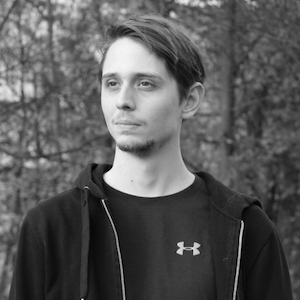 Paul Seidler
Paul Seidler
Counterecologies: a select history of autonomy, sovereignty and ecology in the cryptosphere
Science fiction has always served as a testbed for the reimagining of possible organizational structures outside of the existing state apparatus. We will present a historical analysis of previous attempts - both in SF literature and IRL - to exit existing power structures and move towards a practice of creating counter-economic and ecologically-oriented organizational structures, as well as discuss the tactics and experiments for doing so we assumed whilst working on terra0. Following this grounding, we will present our conceptualization of counter-economic ecological actions, how DLT, p2p systems and asymmetric key cryptography can help actualize them, and what we think this means for the future of tech development and social coordination.
Slévárna14.00
 Olga Ukolova
Olga Ukolova
NAP for artificial agents: will AI knock before slamming the humanity's door?
Each code of conduct is a derivative from nature of actors and nature of interaction between them. Humans have been trying to overcome (or suppress) their nature by creating moral standards, rules, by means of which they could judge each other and decide whether to build the interaction further or to refuse and disrupt the communication.
For the last decades we have been trying to apply our ethics and moral principles to other types of agents - artificial ones, in order to judge them and be capable of reacting accordingly. But do computers have the nature similar to ours that would make the application possible? Will the nature of interaction between artificial and biological agents be the same as human-to-human? Will AI have a goodwill to politely ask us to cooperate before tearing down our barbed wire fences?
15.00
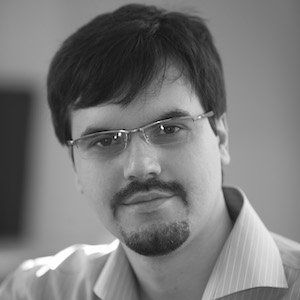 Dr Maxim Orlovsky
Dr Maxim Orlovsky
A proper path to digital immortality
Last year my talk was devoted to uncensorable and unregulated artificial intelligence. This year I'd like to give more technical insights into the topic and describe how existing Bitcoin and Lightning Network technologies can be utilized to break the attribution between computing, messaging, storage and ownership — and physical identity of the person. Then, I will disclose why these steps are a required part of the equation that can eventually lead to digital immortality.
Studio 115.00
 Petr Lupač
Petr Lupač
Constructing parallel opt-out infrastructures: A sociological contribution
We are deeply entrenched in numerous socio-technological systems that structure our everyday life. They function by channelling, prohibiting, controlling, limiting, categorizing, standardizing (…) our behaviour. Just count how many of these systems you have “joined/used” to this very day.
Current ideas and attempts at finding a technological solution to help us opt out from this “first constrained realm” are not entirely novel. In light of this congress, the one most worth considering is the very notion of a decentralized and free computer network, one which should catalyse a positive societal revolution and leave behind the evils of centralised and alienating state-corporate systems.
By employing a sociological approach (namely sociology of technology), we will look at what went wrong in the socio-technical history of the free computer network project and examine how the resulting system forms new hard-to-escape dependencies.
Was A Declaration of the Independence of Cyberspace too early, just in time or too late? Is it even possible to construct a technological infrastructure to opt out of “the first realm“? Which sociological criteria would facilitate an opt-out system? And lastly, how are new dependencies formed when two parallel systems meet?
15.00
Workshop - HCPP19 Badge Clinic: Modify and customise your electronic badge at the hands on HCPP19 Badge Clinic!
HCPP19 Badge Clinic: Modify and customise your electronic badge at the hands on HCPP19 Badge Clinic!
Lead by Michael Schloh von Bennewitz
HCPP supports your creative hacker instincts by offering the first ever Badge Clinic. Find it in the published floor map, and join us to learn and push the limits of your hardware hacking ability.
The HCPP19 Electronic Badge's test points TP(num) and solderfield SF(num) labeled HACK! exist for an important reason: To foster our common hardware hacking skills.
Come to the Badge Clinic to explore the features of your electronic badge(s) in depth, as well as conduct experiments and modifications. Become a creative hardware hacker as a electronics instructor guides you to satisfy curiosity and creatively explore technical customisations.
- Simply assisting with smartphone readerer devices
- Tapping the EEPROM storage with a chip leg clamp
- Reading and writing I2C signals with a logic analyser
- Sending commands and configuring with a bus pirate
- Aiding wearability by adding a magnetic badge mount
Badge Clinic can be found in Hackerspace/Lab under Bitcoin Coffee during whole HCPP!
16.00
Lightning Talks
Speakers: exiledsurfer, Charles Hill, Mário Havel
exiledsurfer
BIO
exiledsurfer co-founded Bitcoiners Without Borders in 2013 together with no-statist Mike Gogulski and technologist / futurist Vinay Gupta. exiledsurfer is a Privacy, Transparency & Decentralization Open-ReSourcerer whose clients have included The Bitcoin Foundation, The Trustlines Foundation, and status.im. He is a co-conspiritor at the Department of Decentralization, which produces the ETHberlin hackathon and does research at the intersection between art and cryptography. As a digital artist / activist, he has produced memetic media for the micronation State of Sabotage, Wikileaks, Anonymous, Lulzsec, Occupy Wallstreet, and the Arab Spring.
ABSTRACT - Stateless in the Panopticon
exiledsurfer will trace his personal journey to statelessness when his passport was revoked by the US State Department in 2014, covering the challenges, trade-offs, and benefits of living in the parallel cypherpunk systems of finance and identity in his ongoing battle to maintain personal freedom and sovereignty under surveillance capitalism’s panopticon institutions.
Charles Hill
BIO
Charles is a cryptocurrency enthusiast, programmer, and researcher. He has many years of professional experience developing mobile and web applications while working for start-ups in Europe as well as the United States. He is a long-time open-source contributor and for the past few years he has been working full-time developing cryptocurrency payment systems.
ABSTRACT - Double-spending: A Practical Reality
Most of the end-user applications used widely today leave their users vulnerable to being defrauded via double-spend attacks. It is no longer a theoretical possibility but a practical reality. During this presentation you will learn how various double-spend attacks work, the current state of the ecosystem as it relates to double-spend attack mitigation, and finally what you can do to protect yourself.
Mário Havel
BIO
Mário Havel studies informatics on CTU in Prague, he is National Coordinator of Students for Liberty and member of both Paralelní Polis and Paralelná Polis. His field of interest is information security, digital privacy and Bitcoin. He is also host of Kofein, podcast focused on technologies and security.
ABSTRACT - Life and Legacy of Aaron Swartz
You may never heard of him. He was one of the brightest minds of his generation. But the life of this hacker and activist wrote a story, where we are witnessing the power of state oppression. He stood at the beginning of Reddit, organizations like Creative Commons, helped to develop RSS and spread open ideas of open information. Aaron Swartz displeased the state and died because of it’s constant pressure. His acts of hacktivism were strongly punished by the state which resulted in the death of the brilliant visionary and digital freedom fighter. In my talk I’ll explain closer Aaron’s activism, his successes and legacy which should be understood by everybody interested in hacktivism and digital freedom.
16.00
Panel - BIOHACK YOURSELF
What is and what is not biohacking? Why we should think about it and how does it relate to concept of do-it-yourself? Where is difference between biohacking and transhumanism, what is real biohacking and when it is applied just as a buzzword? We called a few local speakers who are interested in applying different strategies into their life to improve their condition and get more out of their mind and body. Join us for a discussion.
Panelists: Mirek Nečas, Veronika Jelínková, Radek Pilich
Moderated by: Juraj Bednár
Mirek Nečas - mental coach who provides his services for athletes and managers. He prefers a holistic approach with human data for overall optimization and sustainability. He also works with the Flow concept and deep concentration. For Mirek is very important how to work with your own energy. If you want to find out more, check his website http://www.mindthebody.cz/.
Veronika Jelinkova - chief biohacker and co-founder of Code of Life, a platform for biohackers. Behavioral economist and author of a book Burn Slowly. Veronika is fascinated by us - humans. She has been experimenting with hacking her own biology for more than ten years. Her focus is on studying the intersection of man and machine, ancient wisdom and science in order to improve one’s health, wellbeing and life.
Radek Pilich - marketer by education, technology visionary by heart, and truth seeker by nature. Radek was working for many years in marketing but now is slightly turning into observer who is dedicated to explorer capabilities of his own body via digital devices and ancient techniques.
16.00
Workshop - What is Electrically conductive fibre, fabric and their use in clothing industry?
What is Electrically conductive fibre, fabric and their use in clothing industry?
Lead by: Oldrich Voyta
Virtual reality, Sport, Healthcare. What these three items are having in common? The answer is - smart clothing and electric conductive fabrics. Come and talk with Oldrich Voyta, who will present his study of electrically conductive fabric and why is important to think and speak of it right now!
About Oldrich Voyta
During his studies at the dance conservatory, Oldrich Voyta was strongly influenced by costume design. In a range of his design work: Ballet Queen (Moravian Theatre Olomouc), contemporary dance performance: Entropy (Bohemian National Hall, New York), 3D Printed Shoes (Musée du Louvre, Paris; Berlin 3D Printing Expo; Prague 3D Printing Expo). Since joining the VO5 Fashion Design Studio Beijing - China, in July 2014, Voyta has developed and successfully presented a project which blends fashion design and art photography into one unit. Since 2015 after joining the DeFacto Design Studio in Beijing, He started to collaborate on a projects which combines design and technology: Pollution mask (RedDot Winner 2018), 3D Printed BIOdegradable shoes for brand Jiri Kalfar (London Fashion Week 2018), wearable vegan shoes made of organic bacterial cellulose with bio degradable 3D printed parts (Milano Design Week 2019) Voyta’s artistic creation is varied and encompasses a range of expression, from theatre costume to fashion design. His work is strongly influenced by the technology merging with clothing into one unit.
17.00
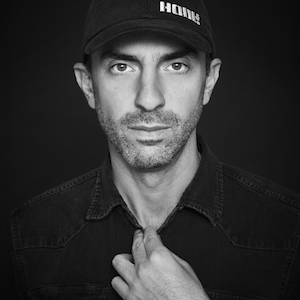 Tone Vays
Tone Vays
Bitcoin - There Can Only be One
Dominance is back to 70%, which begs the following question: is it just getting started as it surpasses it's former status (pre-2017 bubble) or will the Alt Season come back? This presentation will thoroughly demonstrate how Altcoins like Litecoin & Monero and Blockchians like Ethereum & Cordana are truly shitcoins and the only path for them is towards a value of 0.
Slévárna17.00
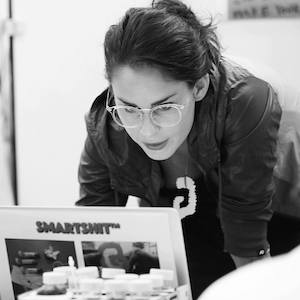 Marketa Dolejsova
Marketa Dolejsova
“Of Course There Are Risks Involved But It Is My Body After All”: Paradoxes of Personalized Nutrition & Diet Hacking
Roman poet and philosopher Lucretius said in the 1st century BC that what is food to one, may be bitter poison to others. In 2019, hyperconnected, health-focused consumers return to this premise and claim the obsolescence of one-size-fits-all dietary guidelines in favor of personalized nutrition (PN) approaches. Drawing on the recent advances in self-quantification technologies, affordable machine learning, and genome sequencing techniques, PN practitioners experiment with food products and services tailored to their individual lifestyle preferences as well as phenotypic and genotypic traits. These practitioners are often motivated by their distrust in official dietary recommendations issued by food and health authorities, and prefer a knowledge derived through self-experimentation. By measuring and quantifying their everyday food intake and outtake, they aim to develop a — supposedly precise — data-driven understanding of their bodies and diets. PN provides opportunities for empowered human-food relationships but also risks regarding limited scientific validity, health safety, and data security.
This talk presents findings from our long-term research on emerging PN technologies, practices, and issues. I will discuss a three-year ethnographic study of the Complete Foods community of ‘diet hackers’ replacing their daily meals with personalized food powders, and share insights from our recent DNA Diets project exploring the risks and opportunities of gene-based PN. The Complete Foods (CF) study (2014-2017) involved interviews with 65 CF dieters, a content analysis of three CF community forums, and two autoethnographic self-experiments where I probed the opportunities and limitations of the diet on myself. The DNA Diets study initiated in 2019, involves experiments with the Promethease service enabling a DIY analysis of personal DNA test reports, and crafting of dinner menus tailored to my and collaborator’s genetic codes. Findings from both case studies will be discussed within the broader context of food-tech innovation and data-driven optimization of everyday food and health practices.
17.00
Workshop - Bleskomat: The Open Lightning ATM
Bleskomat: The Open Lightning ATM
Lead by Carlos Garcia Ortiz
(with support from the rest of the Bleskomat team)
Come and learn how to build an open-source, open-hardware ATM for the Lightning Network. This workshop will include a hands-on demonstration of the “Bleskomat” in action, a brief talk about how it works and the challenges that were overcome during its development, and finally a questions and answers session with the creators.
About Carlos Garcia Ortiz
Carlos holds a masters degree in food engineering, and has diverse experience ranging from research in agricultural technologies to business valuation of agricultural companies. During the last two years he has been working as a software developer in different projects related to IoT and data visualization.
18.00
 Paul Rosenberg
Paul Rosenberg
Opting-Out, To Precisely What?
Yes, we all want to escape the pressures and abuse of the reigning systems, but things don’t become magically wonderful just because we’ve opted-out. New structures and new ways of living have to be built outside, and even though we’ve made a nice start, it has been just a small start. We have a long, long way to go.
We’re also guaranteed to face challenges on the outside, not only from bad people who may follow us there, but because none of us are fully developed, and we all carry some difficulties with us.
Being outside gives us space to build anew and to create better structures for ourselves, and then to improve ourselves. We’ll have to choose our actions well and we’ll have to work hard, but if we do, even the sky will be no limit.
18.00
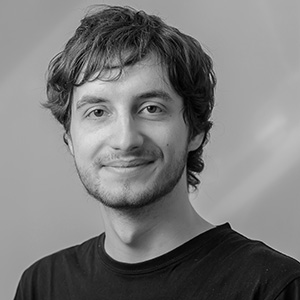 Martin Habovštiak
Martin Habovštiak
UX challenges of the Bitcoin ecosystem
In some ways, Bitcoin UX is already better than Internet banking. In other ways, it's much worse. This presentation will describe experiences of visitors of Paralelna Polis Bratislava as well as experience of techies, who tried to use Lightning Network. The talk will also suggest improvements to make opting-out easier and possible for more people.
Institute of Cryptoanarchy18.00
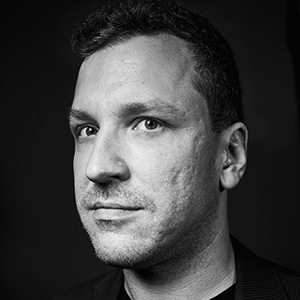 Matthias Tarasiewicz
Matthias Tarasiewicz
The past, present and future of Opt-Out with Open and Libre Hardware
FOSH (Free and Open Source Hardware) in the past years has moved away from being a small niche and has developed to a relevant movement with significant and well-known projects. Open Science Hardware offers an opt-out potential against centralisation, as visible in the "Safecast"
Crowd Science Geiger Counter, which offered concerned people a chance to fact-check radiation levels after the Fukushima incident in Japan.
Open Hardware has a success story to tell - but what does "open" in this context mean? How open can hardware be, post the age of microcomputing? Verifiable hardware could even help future nuclear disarming (see 34C3, "Vintage Computing for Trusted Radiation Measurements and a World Free of Nuclear Weapons"). In contrast, the actual hardware landscape is neither very open, nor verifiable.
Additionally, HSMs and TEEs are challenging zero-trust by introducing novel attack vectors. Mistrust in modern day processors are growing, especially after “Spectre”, “Foreshadow” and “Spoiler”. Full Opt-Out possibility is presently not possible, Free and Open Source Silicon can the first step to a Zero-Trust society - but the future remains speculative.
[This talk is part of the #OHM2019 Open Hardware Month]
[Please in this context also see the workshop “Black Crystal” on 5th of October]
19.00
 Robin Hanson
Robin Hanson
Who Vouches For You?: A Radical Crime Law Proposal
Most ancient societies used simple A-sues-B-for-cash legal systems to deal with most harms. But in the last few centuries, states added “crime law”, wherein the state investigates, sues, and imprisons “criminals.” These centrally-run one-size-fits-all bureaucratic systems don’t innovate well nor adapt well to individual conditions. And even though most of your “constitutional rights” are regarding such systems, they still seem badly broken.
In the ancient world, a stranger who came to town was trusted more if a local “vouched” for them. We still use vouching today in bonded contractors, in organized crime, and in requiring most everyone to get an insurer who pays on their behalf if they cause a car accident. I propose requiring everyone to get an insurer to vouch for them regarding any crimes they might commit. If you are found guilty of a crime, your “voucher” pays the state a fine, and then pays to punish you according to your contract with them. This fine in part pays the private bounty-hunter who convinced the court of your guilt. Competing bounty-hunters obey law because they can’t maintain a blue-wall-of-silence.
To lower your voucher premiums, you might agree to (1) prison, torture, or exile, if caught, (2) prior limits on your freedom like curfews, ankle bracelets, and their reading your emails, and (3) co-liability wherein you and your buddies are all punished if any one of you is found guilty. In this system, the state still decides what behaviors are crimes and if any one accusation is true, and it sets fine and bounty levels regarding how hard to discourage and detect each kind of crime. But each person chooses their own “constitutional rights”, and vouchers acquire incentives and opportunity to innovate and adapt, by searching in a large space of ways to discourage crime.
19.00
 Robin Hanson
Robin Hanson
Who Vouches For You?: A Radical Crime Law Proposal (Livestream)
Most ancient societies used simple A-sues-B-for-cash legal systems to deal with most harms. But in the last few centuries, states added “crime law”, wherein the state investigates, sues, and imprisons “criminals.” These centrally-run one-size-fits-all bureaucratic systems don’t innovate well nor adapt well to individual conditions. And even though most of your “constitutional rights” are regarding such systems, they still seem badly broken.
In the ancient world, a stranger who came to town was trusted more if a local “vouched” for them. We still use vouching today in bonded contractors, in organized crime, and in requiring most everyone to get an insurer who pays on their behalf if they cause a car accident. I propose requiring everyone to get an insurer to vouch for them regarding any crimes they might commit. If you are found guilty of a crime, your “voucher” pays the state a fine, and then pays to punish you according to your contract with them. This fine in part pays the private bounty-hunter who convinced the court of your guilt. Competing bounty-hunters obey law because they can’t maintain a blue-wall-of-silence.
To lower your voucher premiums, you might agree to (1) prison, torture, or exile, if caught, (2) prior limits on your freedom like curfews, ankle bracelets, and their reading your emails, and (3) co-liability wherein you and your buddies are all punished if any one of you is found guilty. In this system, the state still decides what behaviors are crimes and if any one accusation is true, and it sets fine and bounty levels regarding how hard to discourage and detect each kind of crime. But each person chooses their own “constitutional rights”, and vouchers acquire incentives and opportunity to innovate and adapt, by searching in a large space of ways to discourage crime.
19.00
 Radim Kozub
Radim Kozub
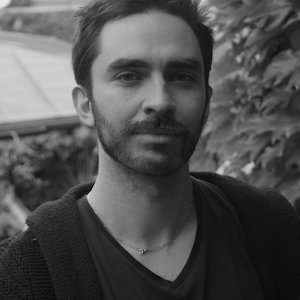 Michal Zatřepálek
Michal Zatřepálek
 Jakub Hamata
Jakub Hamata
Story of Parallel Garden: Making Environmental Change From Scratch
You know the feeling: There is a an issue. The big one and globally significant. You understand its urgency and you would like to solve it. And you are alone, or there is only few of you. So what can you do? Get involved in politics. Initiate the protests or get involved in the existing ones. Will you succeed? Maybe or maybe not.
There is also another way of investing your time and energy - start the change on your own. Get a couple of similar minded people and start working on practical solutions. Make the first prototype. Then, address the relevant community with it and analyze the feedback. Learn, develop and scale after then.
As a members of Paralelni Polis community, we were surrounded by several environmental clichés, mostly about the eco-unfriendly cryptocurrency mining. Actually, their substance was similar to many others environmental issues: many debates and only a few practically-based conclusions with very poor impact. So, we decided to take action. We built up our first hydroponic system, start cooperation with hackerspace in order to include automation. And start the path to automated rooftop greenhouse. We also open-sourced all of our know-how in order to make it spread as far as possible. The accurate feedback on the effect of our actions was substantial to us - so we refused state-based financial sources and emphasize the peer-to-peer relation. We will be happy to share our story with you! In the meantime, we don 't waste time and iterate!
AFTER THE TALK you are more than welcomed to join the guided tour - Parallel Garden team will show you hydroponic systems and FarmBot installed in Paralelní Polis and tell you further details.
20.00
Project Libertas
An update on the first documentary film about Czech and Slovak crypto scene with exclusive content preview for HCPP19 attendees.
Studio 121.00
Live Music Performance and Party - Mr. Cukr and Dr. Bič
Mr. Cukr and Dr. Bič
Local DJs who will present their usual selection of freaky dance numbers, from sweet and sweaty šlagers to nasty whip-cracking electro anthems, and in between, lots of disco, funk, and synth pop tracks for groovie geeks of all ages, sizes, and emotional states...
8.00
Opening
09.00
Workshop - Black Crystal
“Black Crystal”
Lead by RIAT and Riddle+Code
The workshop follows the huge success of the previous format “decentralised ID authentication & access workshop”, which has been held in RIAT Vienna in July 2019 and covered topics such as Shamir Secret Sharing, Machine Identities, and Decentralised Identifiers.
The workshop at HCPP is limited to 25 people and is free of charge.
Registration starts October 2 at https://www.eventbrite.com/e/black-crystal-workshop-from-riat-and-riddlecode-tickets-74826146017?ref=hcpp
Pre-requirements for workshop participants
- Workshop participants should have basic programming knowledge (experience with C. C++ and Arduino IDE).
- Networking and Linux knowledge is required.
- Basic Hardware knowledge is necessary (Raspberry Pi, HSM).
- Basic concepts about hardware wallets, cryptography and public/private key systems should be of knowledge.
About RIAT - Institute for Future Cryptoeconomics
RIAT is an independent R+D institute focussing on Open Hardware, Blockchain and Privacy-Enabling technologies. The institute is active in Austria, Cyprus and the US and exists since 2012. The institute is
one of the world’s earliest blockchain institutes. The “cryptography and hardware” division of RIAT works on communicating (open) hardware related topics to developers, enthusiasts and the general public.
More information:
https://riat.at/open-hardware-dialogues/
https://ohm.oshwa.org/event/open-hardware-dialogues-black-crystal/
13.00
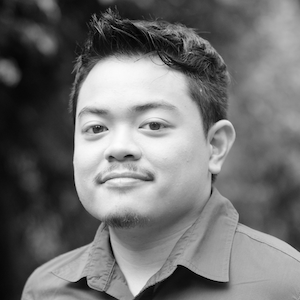 Travin Keith
Travin Keith
The Dehumanizing Process of Immigration Systems
Numerous immigration systems around the world are broken. Though part of the reason is due to illegal immigration, a significant amount remains fixable, but isn't, due to the fact that most citizens of countries are never exposed to the problem, and most legal immigrants, sometimes known as an expat, either prefer to not do anything about it, perhaps out of fear of being mistreated, or are not able to influence change. Because of this, many problems remain that reduce the value of an individual and their own merits to where they were born, something that they have no control over, that cause burdensome processes that stifle business growth and economic freedom, or outright rejection. This presentation will go over relevant data from immigration policies around the world as well as personal experiences from the speaker, a former digital nomad who has traveled to 31 countries and lived in 8 of them, all while holding a passport of a country with a Global Passport Ranking of 133 out of 199 countries.
Slévárna13.00
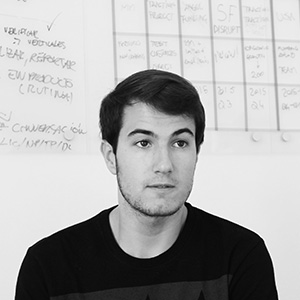 Luis Cuende
Luis Cuende
Opting out of the legal system: Introducing a decentralized court
Crypto is disintermediating and commoditizing many things that used to be monopolies. Currency is an example of a monopoly that used to be owned by the nation state. But if we go to the very core of what nation states provide, they provide legal security and asset protection. They do that by implementing a court and legal system. Thanks to crypto and advancements in smart contract systems, we can now implement a fully decentralized court system. Let's explore how, and review how Aragon is implementing this system as an Internet-native jurisdiction for decentralized organizations and sovereign individuals.
Studio 113.00
 Michal Postránecký
Michal Postránecký
Opt-Out for the Cities of the Future?
Institute of Cryptoanarchy14.00
 Yisi Liu
Yisi Liu
Enhanced Privacy with Decentralized Identity
A brief introduction to decentralized identities and how our open-source company enables users to talk freely on the existing Internet.
People are under massive censorship on the current Internet. They cannot escape but stay because they never have an option: all their connections are still on the same platforms and most of them don't even know that their privacies are being violated. We will discuss this problem first and then propose our solution: maskbook.com and tessercube.com. Both of them are adopting a decentralized identity idea and enables users to protect their privacies without being violated by the companies. People finally got an alternative option that not only preserves their privacies but also letting them stay on the existing Internet. We believe this would help users move towards crypto-anarchism.
14.00
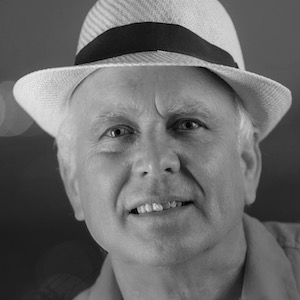 Ken Schoolland
Ken Schoolland
The Oldest and Most Feared Opt-Out Strategy: Migration
Throughout history and around the world people have been 1) intent on controlling others; 2) content to be controlled; and 3) determined to be free of control by others. The latter group is constantly seeking and preparing contingencies for their own eventual and necessary escape to freedom. This can be aided by contemplating the paths taken by more than 240 million others in recent years with varying degrees of success. And surely the numbers would be much greater except for the multitude and measure of the obstacles.
Some paths to freedom are crude and unsophisticated, but nonetheless imaginative and brazen. The most apparent and direct way to avoid the clutches of tyranny is to physically move to places of relatively less tyranny. The movement of great numbers of people around the planet evokes passions of both courage and fear with all the consequent conflict and trauma for leavers & remainers as well as for inviters & excluders.
Ironically, much of the desperation of people in poor countries is aggravated by some, perhaps well-intentioned but calamitous, behavior by governments in prosperous countries: i.e. trade manipulations, drug wars, and assistance to foreign rulers. This assistance to rulers includes the closing of escape routes. Likewise, well-intentioned domestic government assistance and a multitude of labor and commercial laws have forcefully aggravated the adjustment and tolerance of migration into relatively prosperous and free countries.
Of many models possible as a solution to these dilemmas of migration, Hong Kong provides useful historical lessons that are practical, humanitarian, and ethical from a libertarian perspective.
14.00
 Juraj Bednár
Juraj Bednár
Financial surveillance and crypto utopias
In a world where financial surveillance is a norm and banking secrecy is gone, what are our option? And how does the surveillance apparatus really work?
The introduction of global regulations on financial transactions had a profound effect. As far as we know, no terrorists were caught because of them. Banking secrecy is gone. It is more difficult to conduct international business. International transactions are being examined and blocked. Commerce is slowing down. The banks are running a police station for the state, enforcing a regulation that is not clear. Conducting international business has become unpredictable.
This creates the value proposition for cryptocurrencies. They bring back privacy, the speed of transactions and are regulated by code, not international agreements. They are difficult to confiscate, some of them are fast, most of them are cheap. And some of them are anonymous. Are cryptocurrencies the next step in the evolution of the financial sector? Or is it a parallel solution to a pressing issue?
This talk looks at the development of financial surveillance. It looks at current financial surveillance and risk management systems. It covers the best use-cases for cryptocurrencies and their value proposition. They are not speculation for gamblers, but a solution to a new pressing issue.
15.00
 Max Hillebrand
Max Hillebrand
Time Traveling the Timechain with Scriptless Scrip Atomic UTXO Swaps
The Taproot implementation of the Schnorr signature scheme opens up a whole wide range of privacy protecting tools for Bitcoin transactions. Specifically the adaptor signature tweaks enable scriptless scripts which can be utilized to craft trustlees swaps of UTXOs that are indistinguishable from any other taproot transaction. This breaks the assumption of chain anal spies that "inputs pay outputs" with plausible deniability for anyone utilizing taproot. Max will elaborate on the powerful magic of time traveling the time chain with plausible deniability.
Slévárna15.00
Panel - BEYOND VIRTUAL REALITY
Is it possible to opt-out from the real world to virtual reality? It this kind of nonsense question or are we heading to the world without physical barriers? We started to develop this technology in 60s, so many could remember Ivan Sutherland experimenting with head mounted display. Today researchers, engineers and developers are looking for new challenges in delivering this technology to public. But what does it really mean for us? What happens to virtual reality when it merges with idea of decentralization and blockchain? Within this panel discussion we would like to discuss a few topic related to virtual reality and its application.
We will introduce three projects:
Decentraland - a virtual reality platform supported by the Ethereum Blockchain. Users can create, experience, and monetize content and applications. The community permanently owns land in Decentraland, so they have full control over their creations. Users claim ownership of virtual land in a block-based package of packages. Landowners control what content is published in their land.
Michal Takáč - former Decentraland employee, PhD student at Technical University in Košice, board member at Paralelná Polis Košice, entrepreneur and software engineer with passion for new technologies. Currently exploring VR/AR possibilities, interested in smart cities, smart home technologies, cryptocurrencies, smart contracts.
Somnium Space - an open, social and persistent VR world built on the blockchain where everyone can buy land, build or import objects and avatars, easily monetize their experiences and immerse themselves into completely alternative reality. The long-term vision is to create a virtual environment which offers a rich addition to reality, packed with new and exciting possibilities. Built as a cross-platform world, Somnium Space allows people to experience one constantly expanding, seamless single instance shaped by players. Combined with an in-world economy, it provides a next step towards a true metaverse experience.
Artur Sychov - he worked as an investment trader for years before becoming a serial entrepreneur. He is a Founder and CEO of Somnium Space and an angel investor. He has founded several startups and holds several patents for hardware inventions which he has implemented into the market. Artur strongly believes in the ultimate future of virtual worlds.
NeosVR - an innovative metaverse engine designed to accelerate the development of social VR applications. It is built on top of a novel scripting engine that integrates engine logic, synchronization and asynchronous job and asset processing into a seamless whole.
This gives creators, engineers, developers or scientists the ability to focus on the behavior of their creations and what makes them unique, with automatic support for a wide variety of VR devices, online collaboration/multiplayer and cloud functionality, both for the development and the project.
Karel Hulec - futurist, generalist and enthusiastic tech analytic to the bone, who has always had a knack for combining business and technology. He joined the cryptocurrency community and cryptocurrency mining operations early on, reinvesting earnings to fund other innovative decentralized projects and his VR endeavors. Starting with the development and manufacturing of virtual reality hardware, and joining forces with Tomáš Mariančík on advanced virtual reality software development later on.
15.00
Workshop - HCPP19 Badge Clinic: Modify and customise your electronic badge at the hands on HCPP19 Badge Clinic!
HCPP19 Badge Clinic: Modify and customise your electronic badge at the hands on HCPP19 Badge Clinic!
Lead by Michael Schloh von Bennewitz
HCPP supports your creative hacker instincts by offering the first ever Badge Clinic. Find it in the published floor map, and join us to learn and push the limits of your hardware hacking ability.
The HCPP19 Electronic Badge's test points TP(num) and solderfield SF(num) labeled HACK! exist for an important reason: To foster our common hardware hacking skills.
Come to the Badge Clinic to explore the features of your electronic badge(s) in depth, as well as conduct experiments and modifications. Become a creative hardware hacker as a electronics instructor guides you to satisfy curiosity and creatively explore technical customisations.
- Simply assisting with smartphone readerer devices
- Tapping the EEPROM storage with a chip leg clamp
- Reading and writing I2C signals with a logic analyser
- Sending commands and configuring with a bus pirate
- Aiding wearability by adding a magnetic badge mount
Badge Clinic can be found in Hackerspace/Lab under Bitcoin Coffee during whole HCPP!
16.00
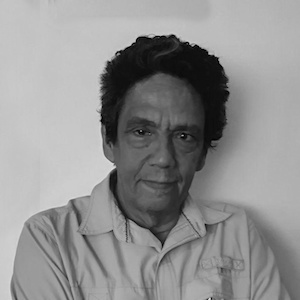 Reinaldo Escobar Casas
Reinaldo Escobar Casas
Freedom shortcuts to information highways
Technological difficulties in connecting to the network, coupled with high prices and a control policy that attempts to censor sites where it disagrees with the government, create an atmosphere that hinders Cubans' relationship with the Internet.
Young people manage to overcome obstacles by creating alternative networks and looking for a type of VPN or anonymous proxy, but the authorities do not stop generating prohibitions arguing the need to guarantee computer security.
A strong social demand has been generated to improve connectivity and expand the spaces to visit. In the complicated situation of Cuba that suffers from the trade restrictions imposed by the United States and where the government applies an internal blockade, the solutions mix political audacity, technological innovation and economic entrepreneurship.
16.00
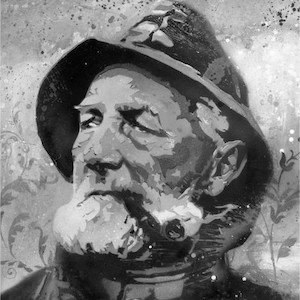 Spyros Dovas
Spyros Dovas
Crypto-Enabled Time Travel
Technology to skip the present times is available today, and improving fast. It is not for the faint-hearted, for sure. But for safely landing into the future, not as a poor immigrant from the past, but rather as a rich tourist, technology is not enough. The right incentives must get aligned and be put to work. This talk is about what is missing, and how Crypto could be the final ingredient to really achieve time travel.
Institute of Cryptoanarchy16.00
Workshop - Double-spending: There's an app for that!
Double-spending: There's an app for that!
Lead by Charles Hill
During this workshop you will learn everything there is to know about double-
spending: Various types of double-spend attacks explained, the current state of
the ecosystem as it relates to double-spend attack mitigation, and finally the
audience will be invited to try double-spending for themselves using a ready-
made mobile application.
About Charles Hill
Charles is a cryptocurrency enthusiast, programmer, and researcher. He has many
years of professional experience developing mobile and web applications while
working for start-ups in Europe as well as the United States. He is a long-time
open-source contributor and for the past few years he has been working full-time
developing cryptocurrency payment systems
Equipment needed:
Android device to install an app
17.00
 Alexander Isavnin
Alexander Isavnin
OPT-OUT: Russian consequences
After fall of Soviet Union and years of political freedom most Russian people opted out of political life. It appears there are a lot more interesting things to do: travel, develop technologies, create the art, grew up children.
But there were some others, who have not opted out of the race for powers.
What do we have now in Russia, what about OPT-OUT now?
17.00
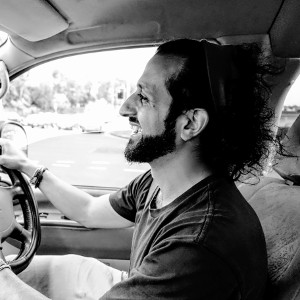 Amin Rafiee
Amin Rafiee
The Age of Decentralization: Society 3.0
As we draw closer to an era where we are no longer bound by centralized rules dictating how our societies should function, we are in need of tools that can support our journey forward.
Our societies have been built from the top-down. Enforcement branching out with no care about how it would effect the people who must pay dearly for its fruits. We are all capable of assessing our needs, we are all capable of building a world shaped by those who live in it, rather than those who enjoy the privileged seats assigned to them.
Regulations are pushing to create boundaries for us to play in. Like obsessive parents, we are being told to play within the limits of their vision. As though the rules they had assigned us had done us any good thus far. The failure to see and acknowledge this has been the root cause of our perish. We are no longer looking for guidance, we seek something much greater. A sign of hope not built by fortune tellers, but by those who have all of humanity in mind. What tools can we use to "opt-out"? Join me for yet another interactive presentation.
17.00
Workshop - Securing transactions, communication and files by one device: RMX hardware wallet approach
Securing transactions, communication and files by one device: RMX hardware wallet approach
Lead by Pavel "i_a" Polach
Effective digital privacy demands complex approach to all interactions in cyberspace. Anonymity of financial transactions, secure messaging and file encryption are main cornerstones and for many people, dedicated secure hardware device is essential to obtain such level of digital privacy.
RMX device aims to bring this approach to the space by including Secure end-to-end encrypted messenger, AES file encryption device and Monero hardware wallet into one device equipped with native alphanumeric keyboard. Use of hardware accelerated cryptographical primitives allows RMX to become fast multi-purpose platform. This feature also enables RMX's accelerated ed25519 elliptic curve multiplication to synchronize the Monero wallet quickly and moreover - without leaking the private key.
The open-source nature of the project together with relevant community participating in iterations and debuging process ensures the possible weaknesses will be eliminated. Community is crucial from the very beginning - more testers will participate, more issues can be solved before the production scaling.Incentivizing the community to participate is the principal intention behind this talk – RMX device prototypes will be available, so come, have a look at them and share your opinion!
Prerequisites Knowledge:
Monero basics
About Pavel "i_a" Polach:
Pavel "i_a" Polach is a hardware engineer, encryption enthusiast and Monero fan. Working experience as a developer for many projects from silicon development industry to IoT sphere. Lead designer in RMX hardware project.
18.00
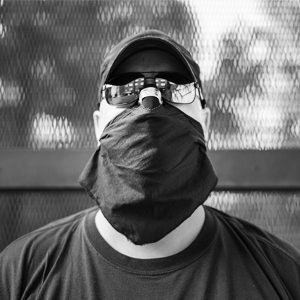 Smuggler
Smuggler
The Forgotten Art of Anonymous Digital Cash: Opting-out of complexity and tracking in the sharing economy and beyond
Cypherpunks and cryptoanarchists have always dreamt of truely anonymous financial systems. This lead to Bitcoin and other blockchain cryptocurrencies. One episode of this development is widely overlooked today: Digital Cash, eCash, eCache and other Digital Bearer Certificate (DBC) systems.
DBCs enable blazing fast, anonymous and untraceable transactions that resemble cash transactions much closer than cryptocurrencies. They are conceptually simple and require much less complex infrastructures. Nevertheless they have been ignored by cryptoanarchist researchers over the last decade.
In this talk we shall explore the necessary properties of government-independent value transfer systems, how to decentralize DBCs, and what a future with digital anonymous micro-transactions means for the realization of cryptoanarchist ideas.
18.00
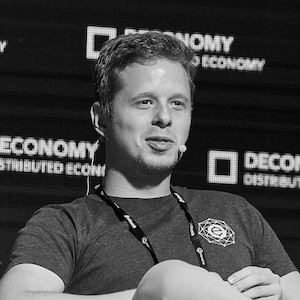 Kilian Rausch
Kilian Rausch
OpenDEX - A Protocol for Unstoppable P2P Trading
The talk covers architecture design choices, the different layers involved, the p2p messaging layer and discusses scalability. The second part demos a trade of an implementation implementing the OpenDEX protocol, an atomic swap between Bitcoin and DAI, a USD stablecoin via the Lightning and Raiden Network. The last part discusses the transition to a community-driven, open & token free protocol and gives a glimpse into implications for society.
Institute of Cryptoanarchy18.00
 Josef Tětek
Josef Tětek
Bitcoin's Security Budget is Adequate... for now
Towards a theory of adequate mining rewards. While some analysts have tried to derive the appropriate security budget / mining rewards from the future Bitcoin marketcap, I offer a bottom-up approach of looking at the onchain transacted values. We find there is an interesting correlation between how much gets transacted on-chain and how much the miners earn.
Slévárna19.00
 Nick Middleton
Nick Middleton
An Atlas of Countries that Don’t Exist (Livestream)
Most of us think we know what a country is, but in truth the concept is notoriously slippery. This talk starts with the familiar political map of the world to show what the bold colours and clear boundaries conceal rather than reveal: a multitude of unrecognised and unnoticed states whose claims to legitimacy are deliberately made invisible. This is the shadowy, surprisingly large, and literally unofficial world of countries that don’t exist.
Based on his best-selling book of the same title, acclaimed travel writer and Oxford geography don, Nick Middleton, takes us on an eye-opening journey through this parallel world. These are wannabe countries that, lacking diplomatic recognition or UN membership, inhabit a realm of shifting borders, idealistic leaders and forgotten peoples. But although the places covered in this talk lie beyond the margins of legitimacy, virtually all can be visited in the real world.
Filled with stories, facts and figures, this is simultaneously an insight into the power of territorial countries, an introduction to creating your own nation state, and a bucket list of destinations from an alternative dimension. Above all, it’s an assortment of yearning tales of nationhood, most led by visionary leaders: some sad, some mad, some downright bizarre.
19.00
 Nick Middleton
Nick Middleton
An Atlas of Countries that Don’t Exist
Most of us think we know what a country is, but in truth the concept is notoriously slippery. This talk starts with the familiar political map of the world to show what the bold colours and clear boundaries conceal rather than reveal: a multitude of unrecognised and unnoticed states whose claims to legitimacy are deliberately made invisible. This is the shadowy, surprisingly large, and literally unofficial world of countries that don’t exist.
Based on his best-selling book of the same title, acclaimed travel writer and Oxford geography don, Nick Middleton, takes us on an eye-opening journey through this parallel world. These are wannabe countries that, lacking diplomatic recognition or UN membership, inhabit a realm of shifting borders, idealistic leaders and forgotten peoples. But although the places covered in this talk lie beyond the margins of legitimacy, virtually all can be visited in the real world.
Filled with stories, facts and figures, this is simultaneously an insight into the power of territorial countries, an introduction to creating your own nation state, and a bucket list of destinations from an alternative dimension. Above all, it’s an assortment of yearning tales of nationhood, most led by visionary leaders: some sad, some mad, some downright bizarre.
19.00
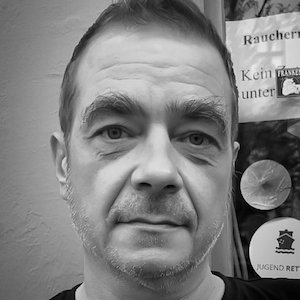 Joerg Platzer
Joerg Platzer
The inevitable and awful end of the grand Bitcoin experiment
Institute of Cryptoanarchy20.00
Paralelní Polis Golden Coin Auction
The annual unique edition of Bitcoin-covered silver coins has been emitted since 2017 under the auspices of the Institute of Cryptoanarchy in a limited number of 100 pieces. The project was created as a symbolic expression of respect for those who fought against the fringing of freedoms by the state and whose work contributed significantly to the freedom of the internet. Each year one gold coin closes the edition of silver coins Paralelní Polis. This year, golden Julian Assange No. 103 will be auctioned and half of the proceeds will go to support the non-profit project Paralelní Polis and its program, and the other half will be sent to the WikiLeaks official Defense Fund. Anyone can participate in the auction, no pre-registration is required. Gold Ross Ulbricht was auctioned last year on HCPP18 and auction proceeds were sent to Ross's mother to the Ross Ulbricht Legal Defense Fund.
21.00
Live Music Performance and Party - Oliver Torr & David Herzig
Live music performance by Oliver Torr & David Herzig, supported by DJ NCOL, will bring you the best synths sounds from out of space on La Fabrika bar stage. If you are more into nosie music, definitely check Bitcoin Coffee at 21:00 for special performance.
8.00
Opening
12.00
Workshop - HCPP19 Badge Clinic: Modify and customise your electronic badge at the hands on HCPP19 Badge Clinic!
HCPP19 Badge Clinic: Modify and customise your electronic badge at the hands on HCPP19 Badge Clinic!
Lead by Michael Schloh von Bennewitz
HCPP supports your creative hacker instincts by offering the first ever Badge Clinic. Find it in the published floor map, and join us to learn and push the limits of your hardware hacking ability.
The HCPP19 Electronic Badge's test points TP(num) and solderfield SF(num) labeled HACK! exist for an important reason: To foster our common hardware hacking skills.
Come to the Badge Clinic to explore the features of your electronic badge(s) in depth, as well as conduct experiments and modifications. Become a creative hardware hacker as a electronics instructor guides you to satisfy curiosity and creatively explore technical customisations.
- Simply assisting with smartphone readerer devices
- Tapping the EEPROM storage with a chip leg clamp
- Reading and writing I2C signals with a logic analyser
- Sending commands and configuring with a bus pirate
- Aiding wearability by adding a magnetic badge mount
Badge Clinic can be found in Hackerspace/Lab under Bitcoin Coffee during whole HCPP!
13.00
 Josef Šlerka
Josef Šlerka
Parallel Polis Revisited: Way from concept of Parallel Polis to Distributed Republic (A Thought Experiment)
More info coming soon.
Slévárna13.00
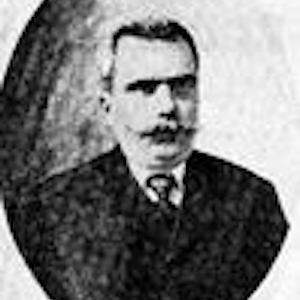 Michalis Kargakis
Michalis Kargakis
A view on Grin
An introduction to Grin, the first public implementation of the Mimblewimble protocol. Grin is a cryptocurrency focused on privacy, scalability, and fairness, with a bottoms-up open community that is welcoming to all kinds of contributions. This talk is going to be an overview of the project. Particularly, I will try to explore how the project fares in what I consider as its core tenets, those of privacy, scalability, and fairness.
Institute of Cryptoanarchy13.00
Panel - Crypto Liberation Communities meetup
Let us introduce existing Crypto Liberation Communities in Catalonia, Germany, Austria, Czech Republic and Slovakia.
Listen their short stories, their achievements and fails.
Be inspired and create your own community!
Panelists:
Nelson Melina & Marc Guals - Barcelona's Polis Parallela
Joerg Platzer - Room 77
Gideon Gallasch - Bitcoin enthusiast, Co-Founder Blockchainhotel and Bitcoin-Treff.de
Smuggler - Anarplex.net / Berlin Container
Martin Leskovjan - Prague's Paralelní Polis
Juraj Bednár - Bratislava's Paralelná Polis
Tomas Kanócz - Košice's Paralelná polis
Moderated by: Pavol Lupták
14.00
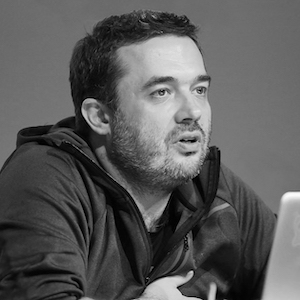 Frank Rieger
Frank Rieger
Cryptography alone is not enough
Cryptocurrency from an attackers perspective means one thing: you can steal data that literally *is* money. A multitude of methods to prevent theft or at least make it harder have been developed over the years – several generations of hardware wallets, paper wallets, various elaborate cold storage systems etc. pp.. 2FA tokens for remote system access and similar devices are very similar in their properties. But they all have one weakness: if an attacker gains physical possession, the security margin shrinks – often too far. Even if an attacker can not reverse engineer the secrets out of access tokens or hardware wallets, he can manipulate the computing devices you use them with, gain valuable information through surveillance or trick you into doing stupid stuff. So the necessary protection envelope is bigger than you may think. This talk will take a look at how real-world attacks against offline and online devices are carried out these days, discuss how to develop an adequate threat model for your needs, explain some basics (like the difference between "tamper evident" and "tamper resistant") as well as typical pitfalls in this game. Finally we will show some new developments that make it easier to achieve better protection in various circumstances.
Institute of Cryptoanarchy14.00
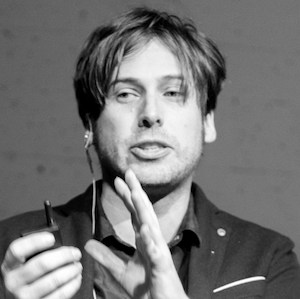 Harry Halpin
Harry Halpin
Code is a Weapon
In the era of ubiquitous surveillance and globally-banked cryptocurrency projects like Facebook's Libra, how can cryptoanarchists fight back? Through cryptographic code! We'll survey the grim state of surveillance, starting with the industrialization of NSA mass surveillance via companies like Chainanalysis to the recent targeting of Assange. We'll present two new systems that are capable of resisting even global adversaries with a full view of the network: Anonymous credentials and mix-networks.
We'll explain how new advances in mix-networking can be integrated with anonymous access credentials to provide end-to-end privacy against even the most powerful of adversaries.
We'll demonstrate how mix-nets provide better anonymity than either Tor or VPNs, and how probabilistic mix-networks such as Loopix can be extended to handle a decentralized environment. We'll also describe new advances in anonymous access credentials, so that with threshold signatures they also function in a decentralized environment. Lastly, we'll discuss how financial incentives enabled by blockchains allow these technologies to become self-sustaining.
15.00
 Inbar Preiss
Inbar Preiss
The revolution of decentralized journalism and its role in conflict zones
The media landscape is transforming as decentralized, peer-to-peer networks are emerging. In conflict zones, this can be a missing piece to expose what is really going on, and facilitate dialogue. What is the role of centralized media in conflict? How do can we deal with censorship and manipulation of information? Does objectivity exist?How do we prevent digital colonialism? How do we have a conversation with our enemy?
It is time to acknowledge the important role of technology to provide the utmost security and freedom of speech in conflict zones and highly government-controlled areas.
15.00
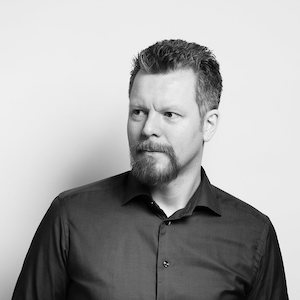 Sondre Bjellås
Sondre Bjellås
How to build our own city
Get an introduction and status update on the Liberstad project, which aims to establish Norway's first private city. More than 125 people from 33 different countries from all around the world have invested in properties in Liberstad. Join this talk to learn more about this exciting project!
Studio 116.00
 Mark Nadal
Mark Nadal
Opt-Out of Money: for Fun & Profit!
Civilization is going through a rapid radical shift, from a pre-Internet age to the Uberification of Industry, the Decentralization of Education, and the Polarization of Government. Both Industry & Government have figured out how to exploit the loopholes in the economic models of Capitalism & Socialism, without any ability for citizen people to opt-out. In this talk, we'll explore the 6 problems any economic system must address and see if there are holes that humanity can escape through.
Slévárna16.00
Lightning Talks
Speakers: Alena Vránova, Jason Evans, Bitcannery, Ketominer
Alena Vránova
BIO
Alena develops early stage ideas into profitable products and services. Her track record includes several successful startups in finance and technology. Alena has over 15 years experience in leadership. She founded SatoshiLabs known for Trezor, the first bitcoin hardware wallet. Today, Alena acts as Head of Strategy for Casa.
ABSTRACT
The Little Bitcoin Book: Why Bitcoin Matters for your Freedom, Finances and Future
Jason Evans
BIO
Jason is a training engineer with SUSE Linux in Prague. He specializes in writing training materials for container-based applications including Docker, Kubernetes, and Cloud Foundry. He is also deeply interested in keeping speech free even in places where it is illegal and so he is also interested in how Tor can help with that goal.
ABSTRACT - Building Tor Onion Services Quickly and Securely Using Containers
What is Tor? Is it merely a place for criminals to hide out on the so called "Dark Web"? Are onion services nothing more than tools to hide illegal pornography and host drug markets? We'll answer these questions as well as learn how to make simple onion services using Linux containers in my presentation. // The Crpto-Anarchist Manifesto speaks of, "the ability for individuals and groups to communicate and interact with each other in a totally anonymous manner". The goal of my presentation is to help enable individuals with the means to do this via Tor. Currently setting up an anonymous Tor onion service is not very difficult but does it take time to understand how the pieces work together. Using the Docker container method, we can minimize complexity and allow new onion services to be brought online quickly and securely. The end result I hope to accomplish is to allow people to communicate peacefully and anonymously without fear from governments and others who will not allow the free exchange of ideas.
Bitcannery
BIO
Pavel is a tech advisor and entrepreneur with the special interest for the modern anti-systemic movements and frameworks. He represents an informal multinational development team.
ABSTRACT - It is all in your head: safekeeping in the digital era.
Bitcannery time-locks an encrypted message on a blockchain to be auto-decrypted at a set point in time.
That point in time can be continuously pushed forward by the sender. This is useful for data escrow, data leaks, last-resort backups, inheritance, insurance and data storage.
Ketominer
BIO
"Full stack" person (electronics to code to networks). Started by electronics and programming at age 7, moved to networking when Internet became mainstream. Built several hosting companies and now applying accumulated knowledge in the Bitcoin space after discovering myself being a crypto anarchist at HCPP17.
ABSTRACT - Selling noodles for fun and profit
In this talk, I present a hypothetical noodle cooking and delivery business as an example of tools that one could use to create a business accepting only bitcoin and spending (mostly) fiat.
Challenges are many, bitcoiners always helpful.
- Being blocked (and sometimes unblocked) by exchanges, prepaid cards, payments gateways, banks...
- Paying (less) customs
- Avoiding customers to pay customs (mostly)
- Shipping stuff around the world without giving sender address
- Using less regarding services to avoid limitations and KYC
- List of services still working at the time of the conference to conduct an "unbusiness" from Europe
16.00
Workshop - How to Crack a Private Key
How to Crack a Private Key
Lead by Robin Cussol
Most people take for granted that cryptography and maths secure billions of dollars worth of cryptocurrency assets everyday, but have you ever asked yourself, “How?”. During this workshop you will learn how – by attempting to crack a private key given its public key using only maths.
Prerequisites Knowledge
Basic mathematics including algebra
About Robin Cussol
After completing a PhD in Mathematics, Robin decided to apply his logical mind to impact more people through software development. He now spends most of his time coding web and mobile applications, but still enjoys the odd occasion to do some maths and explain arcane symbols.
17.00
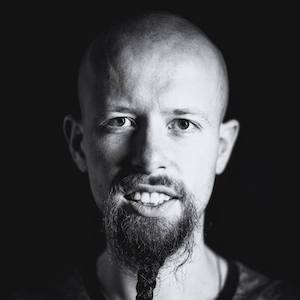 Tomáš Marada
Tomáš Marada
Trustless loan backed by BTC
How loan can be replicated using derivatives, mainly futures and swaps. And how to enter such contracts in p2p fashion. The talk examines current possibilities how to take the loan backed by hodlers BTC and how to construct loan using BTC derivatives, mainly futures and swaps. In the end simple p2p derivative construction will be described.
Institute of Cryptoanarchy17.00
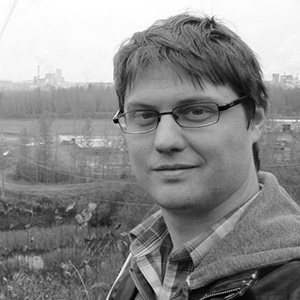 Peter Todd
Peter Todd
Dishonest Devs: Defeating Insider Attacks on Decentralized Tech
Decentralized systems are meant to be trustless. But our interactions with tech is always mediated by software. This talk will cover the threat, including real and hypothetical attacks, what it takes for communities to defeat these attacks, and how we can better design decentralized systems to defeat these attacks.
Studio 117.00
Workshop - Future of decentralised species conservation
Future of decentralised species conservation
Lead by Tomáš Ouhel
Rapid loss of biodiversity has been overshadowed by ongoing world debate about climate changes with outcomes of so called “global warming”. Governments and multinational NGOs are claiming their efforts in reducing carbon emissions in order to prove their commitments and transferring money between climate funds with very small real impact. But unfortunately we are losing whole species without further notice and no one knows which of these species loose may be the fatal one. If we look precisely into the core of the problems we can identify many small actions which can be taken to have a big impact. We will demonstrate you how small changes in to the old systems using high-tech can cause big impact on species survival for example with critically endangered sea turtles. Species conservation is now opening to decentralised leadership and may become a field for successful implementation of blockchain technology, local communities may uberised the acts for wildlife and get benefits accordingly. There is a long journey of full decentralisation in biodiversity conservation, but it is time to start now.
About Tomáš Ouhel
Zoologist Tomáš Ouhel is the director of the Silent Forest World Conservation Campaign and he has also personal experience in fighting poachers in Indonesia.
18.00
 Li Zhao Schoolland
Li Zhao Schoolland
Why do we need to be and should be opt-out?
You will find the answer from the stories of my life.
Studio 118.00
 František Vrábel
František Vrábel
Dictatorship 2.0: 'powered by AI'
This analysis of hostile state sponsored disinformation will serve as an introduction to the more nuanced analysis of Facebook, which plays a key role in those campaigns. This speech will explain Facebook’s shameful business model supported by AI algorithms with no ethical and social dimensions. This way, AI is used for the nasty dehumanization of mankind – in the name of profit and even more power for Facebook’s founder.
Slévárna18.00
 Patrik Tjokorda
Patrik Tjokorda
Bitcoin peer banking
Bitcoin backed trustless peer banking. What?
Think peers banking peers. Alice the “hodler” going long Bitcoin, Bob the “lender” providing her dollar liquidity for an interest, Charlie “the miner” hedging to dollars, Dave the “financier” balancing demand and supply liquidity and Emily the “trader” speculating on futures, options, FXs or stocks. All just above Bitcoin as the underlying and creating a parallel trustless financial system.
Think DeFi built on top of Bitcoin using Bitcoin multisig tech to get simple reliable smart contracts, using Bitcoin as the only reliable store of value.
Think open source third layer on top of Bitcoin, an accounting layer that can share liquidity and reconcile across on-chain and lightning settlement layers.
From theoretical concepts to real world products and how we can get this done.
19.00
Closing Speech
Studio 1